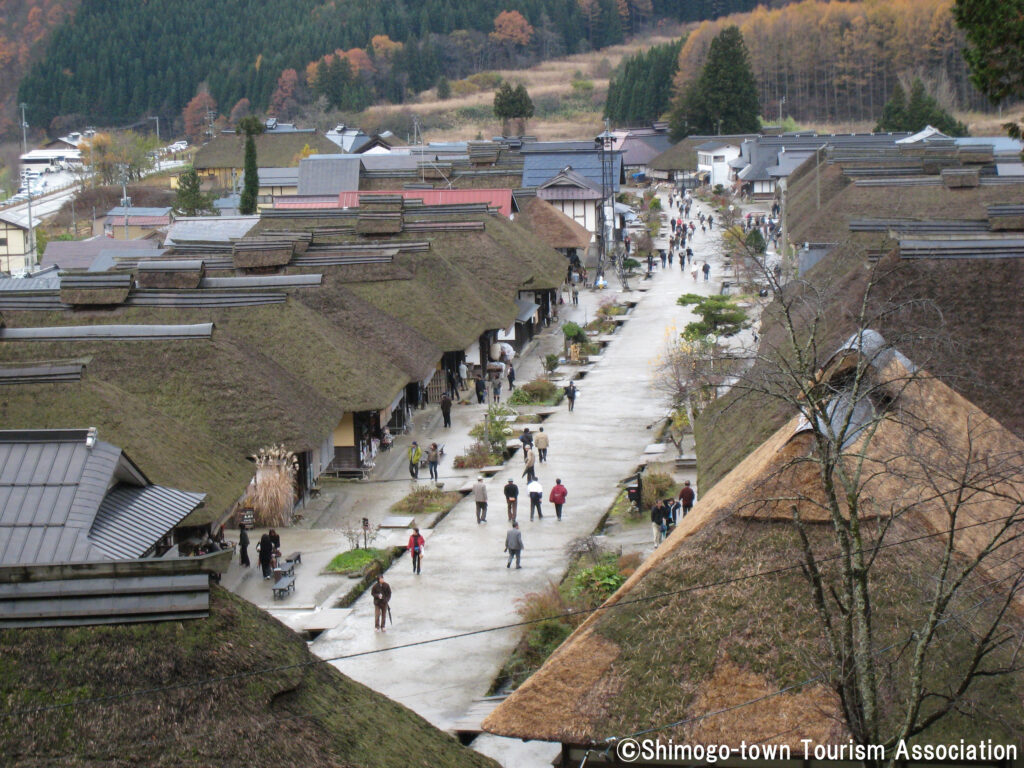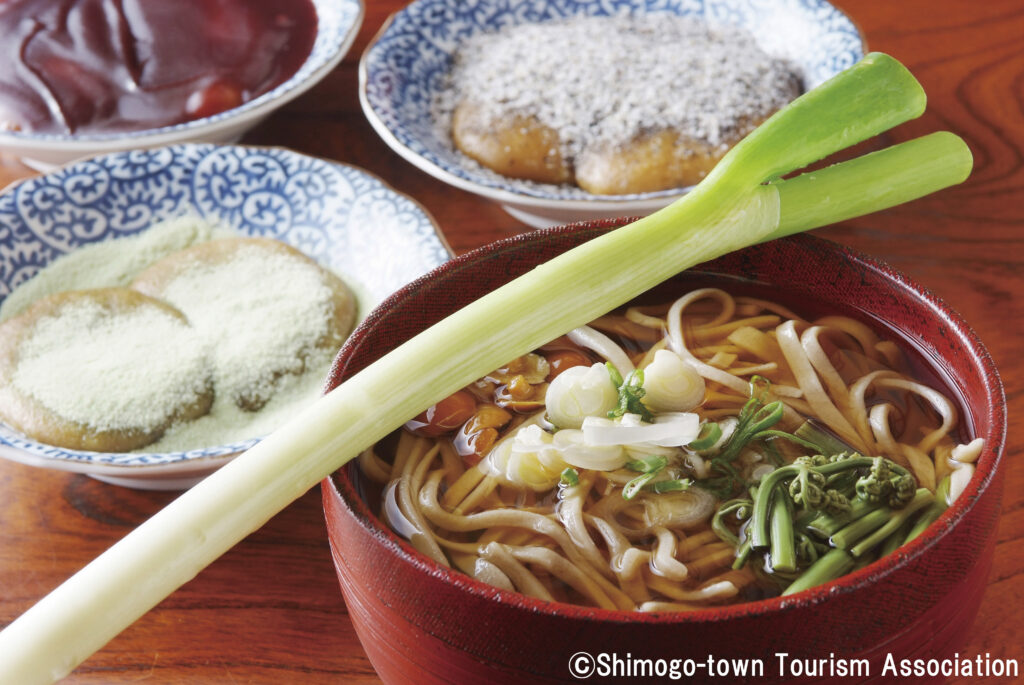
Most trips to Japan come with a must-see list: a Torii shrine gate, a Tokyo skyscraper, cherry blossoms in full bloom. Traditional streetscapes are up there too and one of the best-preserved examples can be found in Ouchijuku, a timeslip town just a couple of hours from Tokyo that’s making a name for itself as a leading tourism heritage destination.
Ouchijuku, in the Aizu area, began to thrive as a post town along a significant merchant route in the 17th century and remained a bustling community for travellers throughout the Edo period. After a period of decline, the town was designated an Important Historical Preservation District in 1981 and restoration work began. The results are striking: pristine thatched Edo-style buildings line the main street, which is also free from the wires and pylons and neon and noise of modern towns. Heritage is well and truly alive here.
Ouchijuku is also a masterclass in sustainability and community. Residents have drawn up a Town Charter based on three core principles: no selling, no leasing, no destroying. The aim is to preserve Ouchijuku, not simply as a tourism destination but as a living community for local people. Their efforts, which include ensuring traditional thatching skills are passed onto younger generations, are informed by the UN’s Sustainable Development Goals (SDGs)
Must-Sees
A simple stroll along the main street is enough to take you back in time, but there’s plenty more to do. Head up to the viewing platform on Yudonosan hill to take in a panoramic view of the main street. Drop into the restored Ouchijuku Honjin Machinami Tenjikan (Ouchijuku Main Inn Museum), which used to be the town’s most luxury accommodation option, to learn the town’s history through a fascinating collection of tools and artifacts. Have a go at making your own buckwheat noodles at Ouchijuku Food Hall Soba Dojo. Wander out of the town centre to discover rich nature: a thousand-year old Zelkova tree, Kannonnuma Forest Park, or Higurashi Falls, so named because its beauty is so.

Gourmet Discoveries
The food in Ouchijuku has also stood the test of time. Visitors can chow down on delicacies such as locally caught iwana (white-spotted char), salt-grilled ayu (sweetfish), and negi soba (buckwheat noodles eaten with a leek). Food stalls and restaurants are dotted along the main street, with local and seasonal ingredients dictating the menu – it’s all about sustainability here, too. In summer, the locally grown vegetables are a delight: crisp, fresh, and kept cool in stream water. That’s also how local shops chill their ramune lemonade. Ouchijuku is the perfect place to try a bottle of this retro fizz.
Getting There: Yuttari Aizu Tobu Free Pass
Ouchijuku and the rest of the Aizu area is readily accessible from central Tokyo. The Yuttari (meaning “relaxing”) Aizu Tobu Free Pass is the best way to get from central Tokyo to the heart of idyllic Aizu. The pass includes round trips between your starting station (from Tokyo’s Asakusa onwards) and Shimo-imaichi station, an area pass for stations beyond Shimo-imaichi, and a range of discounts and offers at local businesses.
There are three types of pass depending on how far into Aizu you’re planning to travel. To get to Ouchijuku (closest station Yunokami-onsen), you would need the Ashinomaki-onsen pass (to Ashinomaki-onsen station), which retails ataround £40* (6,920 yen) per adult, £20* (3,470 yen) per child up to 12 from Asakusa station in Tokyo.
Japan, come with a must-see list: a Torii shrine gate, a Tokyo skyscraper, cherry blossoms in full bloom. Traditional streetscapes are up there too and one of the best-preserved examples can be found in Ouchijuku, a timeslip town just a couple of hours from Tokyo that’s making a name for itself as a leading tourism heritage destination.



 share
share







































